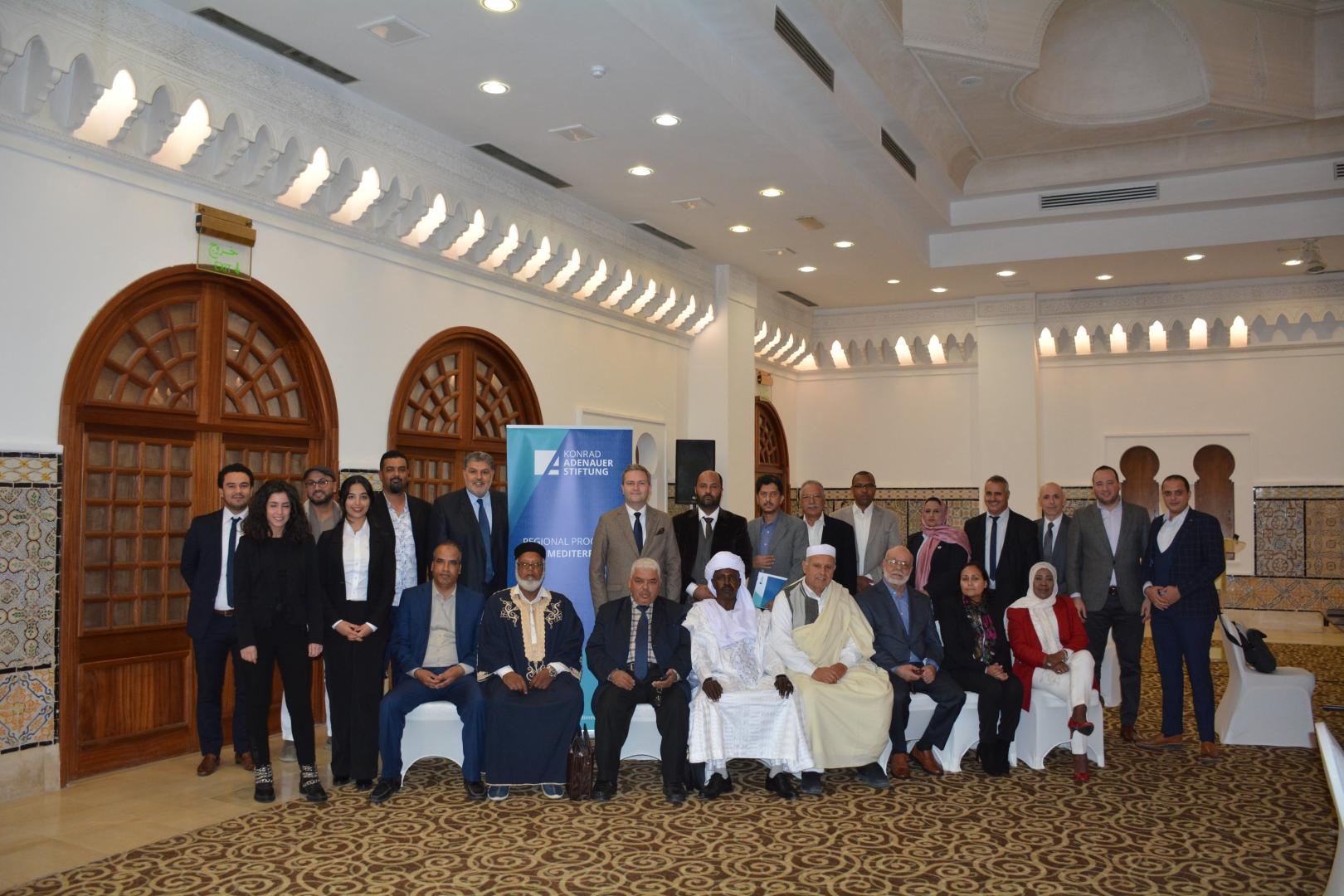Within this framework and throughout four interactive and informative panels, the experts examined the positioning of tribes in Libya and explored new horizons for a better understanding of processes of national reconciliation and framing scenarios for Libya’s future.
The first panel discussed tribes’ evolution and their historical and social significance. The Tubus tribes were particularly tackled by unveiling their ideology and vision. The participants pinpointed the challenges of the tribal factor by initiating a debate on whether tribes constitute a source of fragmentation or cohesion in Libyan society.
The second panel was dedicated to the challenging security and economic situation in Libya since 2011. Participants discussed policies of stabilization and how they must go hand in hand with economic and political reforms. Oil revenues, for instance, could be a promising feature for an economic recovery, yet natural resource management needs to be reconciled with a political agenda and a solid mediation strategy. Current migration dynamics in the Fezzan region, a southern region split between two allegiances, were also pointed out. Furthermore, an engaging discussion on social justice and Libyan Women’s Rights was carried out by notable activists, who stressed the importance of insuring women’s participation in the Libyan political scene.
In the third panel, the experts buckled down to unpacking the dynamics of national reconciliation processes in Libya. Drawing from their own experiences, participants highlighted the importance of an inclusive approach to reconciliation, where municipal councils and other local community actors are crucial to solving Libya’s current crisis. They enumerated the major obstacles which hindered previous reconciliation attempts namely, the absence of strong and sovereign state institutions, power rivalries at the national level, and foreign interference in internal Libyan affairs.
The closing panel shed light on the future scenarios for Libya’s political scene. The speakers emphasized the importance of the bottom-up approach to governance and the urgency to involve youth in the mediation tracks, as the future of the country largely depends on the ability of its youth to open up to the world and overcome current socio-political boundaries.
The discussions offered a valuable opportunity for better understanding the positioning of tribes in the Libyan social and political fabric. The workshop unveiled the main rivalries and dynamics that stand against the consolidation of a successful political process and entailed ideas that could help orientate discussions on Libya towards a concrete and more constructive horizon in the future.




